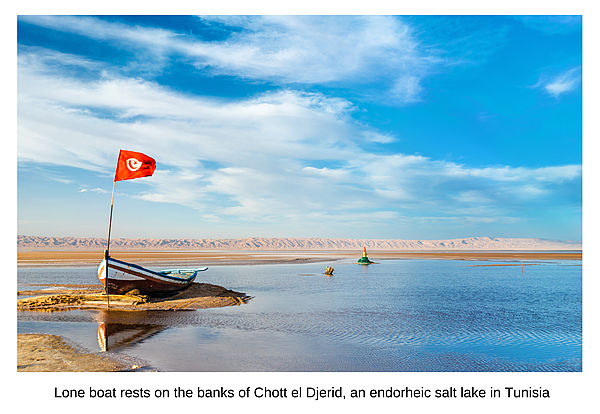 Tunisia: The Jewel of the Mediterranean, Where Sands of Time Blend with Turquoise Waters
Tunisia: The Jewel of the Mediterranean, Where Sands of Time Blend with Turquoise Waters
Beneath the African sun, at the northernmost edge of the continent, lies Tunisia, a land where age-old traditions mingle with modern sensibilities against a backdrop of diverse landscapes.
From its golden Sahara dunes to its verdant olive groves, from its ancient Roman ruins to its bustling souks, Tunisia is a land of contrasts, pulsating with an energy as warm as the Mediterranean sun that graces its shores.
Tunisia’s story is a compelling tapestry of cultures and civilizations that have left their indelible mark on this land. Phoenicians, Romans, Byzantines, Ottomans, Spanish, and French have all called this place home, contributing to its rich cultural heritage. The remnants of these past civilizations stand in silent testimony to the passage of time, offering glimpses into a fascinating past.
In the heart of Tunisia, the vibrant capital city of Tunis, a harmonious blend of the old and the new, comes alive with activity. The city's Medina, a UNESCO World Heritage site, is a labyrinth of narrow alleyways lined with colorful stalls selling everything from richly woven carpets to aromatic spices. In stark contrast, the Ville Nouvelle (New Town) is a reflection of the French colonial influence, characterized by wide boulevards and elegant cafes.
Away from the bustling cityscapes, the serene beauty of Tunisia unfolds in all its splendor. The shimmering sands of the Sahara, the cool mountain breezes of the Atlas, the crystal-clear waters of the Mediterranean, and the verdant olive groves and vineyards all paint a picture of natural diversity and abundance.
Yet, the magic of Tunisia lies not just in its historical treasures or its natural beauty, but in its people. Known for their hospitality and warmth, Tunisians invite you to partake in their customs, taste their cuisine, listen to their music, and learn their dance. They welcome you into their world, which is as diverse and vibrant as the landscapes that surround them.
So come, journey through Tunisia, a land steeped in history and blessed with natural beauty. Bask in its Mediterranean warmth, lose yourself in its history, revel in its culture, and let its enchanting landscapes captivate your senses. This is Tunisia – timeless, alluring, and forever unforgettable.
For a short video introduction of Tunisia, click below
Visa Requirements
Nationals from the EU, US, Canada, and several other countries do not need a visa for stays up to 90 days. But always verify the most current information with the nearest Tunisian embassy or consulate.
Currency
The official currency is the Tunisian Dinar (TND). Credit cards are accepted in hotels and major tourist spots, but cash is preferable in small establishments and markets.
Language
The official language is Arabic, but French is widely spoken. English is understood in major cities and tourist areas.
Connectivity
Tunisia has good mobile and internet coverage, with the leading providers being Tunisie Telecom, Ooredoo, and Orange. Prepaid SIM cards can be bought at the airport or from local shops.
Health and Safety
Medical facilities in larger cities are of a good standard, but can be basic in rural areas. Ensure you have sufficient travel health insurance. While Tunisia is generally safe, use common sense precautions, especially in crowded areas.
Tourist Attractions Not To Be Missed
1. The Medina of Tunis (Tunis): This historic heart of the Tunisian capital is a UNESCO World Heritage site filled with ancient mosques, bustling souks, and ornate palaces. It's a delightful maze where every turn reveals a new scent, color, or sound.
2. The Amphitheatre of El Jem (El Jem): This remarkably well-preserved Roman amphitheater, also a UNESCO site, once held up to 35,000 spectators. Today, it stands as a magnificent testament to the grandeur of Roman architecture and engineering.
3. Djerba Island: Known as the 'Island of Dreams', Djerba boasts beautiful beaches, a charming old town (Houmt Souk), and the ancient El Ghriba Synagogue, one of the oldest synagogues in the world.
Last but not least
Here is another trick: Before your trip, learn a few basic phrases in Arabic or French. It's not just practical; it also shows respect for the local culture. A simple 'Salam' (hello) or 'Shukran' (thank you) can go a long way in building connections with the locals.
